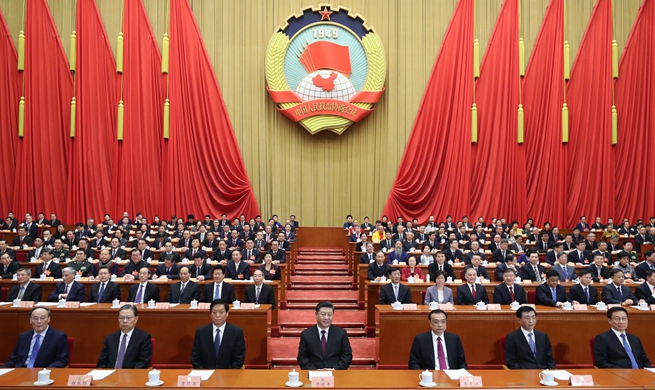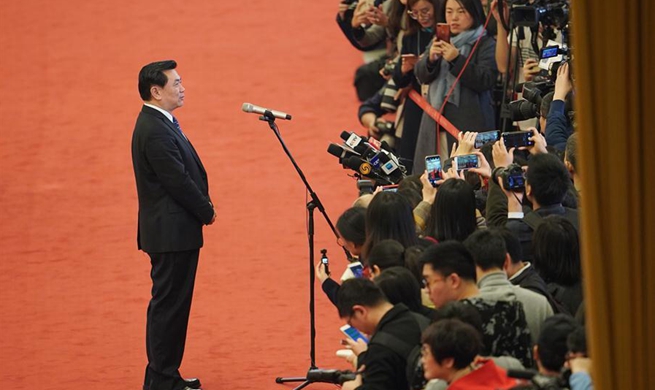By sportswriters Gao Peng and Wang Jingyu
BEIJING, March 3 (Xinhua) -- China is ramping up its efforts to expand its talent pool of football players throughout the country.
In 2019, the Chinese Ministry of Education has granted 287 colleges and universities the right to enroll student athletes across 16 sports. Among them, football becomes the most striking sport, with 181 campuses recruiting football-playing students, up from 152 last year.
"Our aim is to expand to 200 colleges and universities nationwide by 2020," said Wang Dengfeng, chief of the Ministry's Department of Physical, Health and Arts Education.
The decision only represents the latest efforts in China's ambitious plan to raise the standard of football in the country.
Football is arguably the most popular sport in China. According to the Chinese Football Association (CFA), the average attendance at the Chinese Super League (CSL) games in 2017 was 23,766, making it one of the world's best-attended professional football leagues.
Yet it has been a source of embarrassment for years for millions of the Chinese fans, as their national team had ever qualified for the FIFA World Cup once, in 2002, when they were stopped in the group stage without scoring a single goal.
Thus came up a frequently-asked question: Why can't China pick up 11 footballers to become a strong team from a population of roughly 1.3 billion?
And some contribute it to the size of the football-playing population, as China has only registered 30,000 players, compared with 6.8 million in Germany and over 2 million in Brazil.
Since March 2015, China has been reshuffling its football industry, with the development of football in schools as the cornerstone. Football courses have been included to the revised curriculum for some primary and secondary schools, and even become a part of their overall assessment as an important reference for admission into higher-level education.
"School football is the foundation. Without a solid foundation, there will neither be a big pool of talents nor any footballing success in the country," said Liu Bo, the dean of the Physical Education Department at the prestigious Tsinghua University.
Yet due to safety concerns and career prospects, many a Chinese parents are reluctant to allow their children to play football regularly in high schools.
"If you spend more time on football training, you will have less time on study. Your academic marks will be affected, and you would probably even fail in the college entrance examination," explained Chen Zhihua, the father of a 13-year-old boy.
Insiders say that the expansion of football programs at colleges and universities is badly needed in order to quell the worries of the Chinese parents like Chen.
"If there were more and more students with football skills who can be admitted into universities, there would be less and less parents who are quick to forbid them from going to training in schools," Liu said.
On the planned reform, Liu noted that the "Football School" program is not solely aimed at developing elite players.
"Our ultimate goal is to help every student take up a healthy sporting lifestyle, so that they will enjoy the benefit for the rest of their lives," Liu said.
















